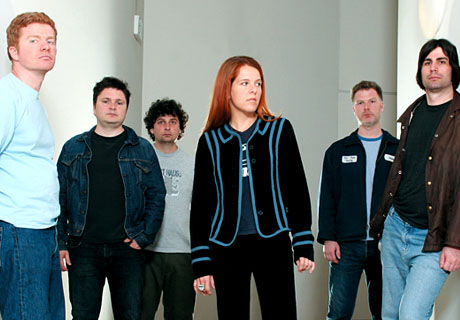Not sure I agree with the conclusion, but the content should be painfully familiar to all of us.
PS This is copyright the Sunday Times which is a great paper and very much worth reading largely because of items like this and if I've broken any laws by re-posting this then I apologise unreservedly, will take it down immediately and suggest you sue Will, who runs this thing.
The great divide
From The Sunday Times - 05/02/2006 (1266 words)
Features
The middle class is now divided into the haves and have-nots -which is fine for those who get to go skiing and drive flash cars, but infuriating for the rest of us, says James Delingpole.
City bonuses are expected to reach near-record levels this year; the waiting list for the new Aston Martin has increased from one year to three; the luxury-goods market is on the up and up, even as the high street plummets; and the market for old vicarages and Pounds 4m-plus town houses is booming. And as I shiver in my hovel in the middle of a south London crack zone, struggling to digest these noisome statistics, I'm reminded of Uncle Monty's great speech from Withnail & I on the subject of failed ambition: "It is the most shattering speech of a young man's life, when one morning he awakes, and quite reasonably says to himself, 'I will never play the Dane.'"
Not, you understand, that I've ever nurtured a burning desire to play Hamlet. I'm talking figuratively here: about the country pad, the swimming pool, the annual skiing holiday, the private education for my kids, the pension plan, the reasonably comfortable retirement and all those other expectations that seemed so perfectly realistic in my youth, but which I'm now slowly being forced to recognise were no more than the hopeless pipe dreams of a crazed romantic.
Where did it all go wrong? And, more to the point, who are all these rich people with money to burn on second homes and third holidays when I have scarcely enough dosh to service my mortgage? Are they really so much cleverer, nicer, funnier, more charming, better read and generally more deserving than me? Or is it just, perhaps, further proof that we live in a terrible, evil, godless world where there is no justice?
Until I started talking to my fellow non-rich friends about this, I thought it was just a me problem, possibly brought on by innate peevishness and a ludicrously inflated sense of entitlement. But, no.
It turns out that this despair and disappointment are almost universal.
Of course, there has always been a bit of an income gap between those involved in the "interesting" professions (teaching, journalism, marine biology) and those involved in boring, no-life ones such as law, banking, IT and accountancy. What has changed out of all proportion, though, is the sheer disparity between the two groups' earning powers. There was a time, I remember, when it didn't matter so much that my banking friends got big bonuses because, hey, I got to hang out with movie stars and go to gigs for free. But I'm afraid to say that job satisfaction consolation just doesn't wash any more. Not when Goldman Sachs's 22,000 employees got their greedy hands on earnings worth a total of $9 billion last year and will be renting estates in Umbria with four live-in staff and a cellar full of Super Tuscan wines for the whole of August, while I might just scrape a wet fortnight in Newquay.
Perhaps it wouldn't matter so much, this ghastly yawning gulf between the middle-class haves and have-nots, if the haves were a little more gracious about their good fortune. I'm sure I wouldn't resent my loaded friends nearly so much if they made free with their chalets or their yachts or their grouse moors or their strings of hunters. But in my experience -I make exception here for those delightful chums who are inviting me to play on their 30-square-mile estate in Scotland this August -the rich only feel comfortable extending generosity to their fellow rich. As another Withnail adage so aptly has it, "free to those who can afford it, very expensive to those that can't".
More galling still is the infuriating habit that rich people have of making out they are subject to the same pecuniary cares as you and me. You'll hear them grumbling about what a struggle it is to pay the school fees, and writhing over how much it costs to heat the swimming pool, or whether it's really not a little extravagant this extension they're having built, or even worrying about the cost of dinner or a cab fare. And you just know that these financial difficulties exist purely in their imagination. Never yet have I heard the rich person who admits, "You know, I'm so totally stacked, I never have to worry about money."
Always, there's this, "I'm just as poor as you really" game they have to play; perhaps out of the misguided notion that you'll feel less jealous, perhaps because, in their warped, rich person's head, it's what they really believe.
At least in the days when the country's wealth and power lay mostly in the hands of the aristocracy, you knew where you stood: money was an accident of birth. Then came a more egalitarian age, which reached its zenith in the heyday of the grammar school, when anyone bright and hard-working enough, no matter what their background, could secure the education that would lead to the trappings and comforts of the middle-class dream. But now, we seem to have returned to a more brutally divided age, only this time, the starkest division lies not between the upper and lower classes but between the rich middle class and the ordinary middle class.
What we're seeing, in other words, is the fragmentation of the middle class into two mutually antipathetic splinter groups. Where once the middle class was a unified bloc of shared values (good manners, a proper education) and lifestyle signifiers (the skiing holiday, the pension plan), it is now riven with bitterness and jealousy on the one side, incomprehension or arrogant disdain on the other.
It is still possible for the rich middle class and the ordinary middle class to be friends with one another. But maintaining those friendships becomes increasingly difficult. Where once I could talk freely with my friends about all aspects of our lives, there are now whole swathes I can't discuss with the richer ones because it's just too damned painful. We can't do education (their kids are at private school, mine aren't); we can't talk work (lest the richies let slip how much they made this week); and we definitely, definitely can't talk about where they're planning to go next on holiday.
"Why?" we poories ask ourselves. "Why them and not us?" And it's more than just chippy resentment that makes us ask, it's because we know deep down that not only are we so much better, funnier, cleverer and more interesting than these ungrateful rich people, but also that we'd spend their money so much more tastefully and wisely. Just think back to your university days, and remember how much brighter and more rounded were the types studying purely intellectual subjects such as English literature, history or classics than those doing more vocational ones such as law.
Then think of all the bores and timeservers, straights and money-grubbing creeps who went into the City, law, management consultancy and Insead, and compare them with the sparky individualists who went into publishing or journalism or television. As one of my rich lawyer friends would no doubt say: I rest my case.
(C) Times Newspapers Ltd, 2006




